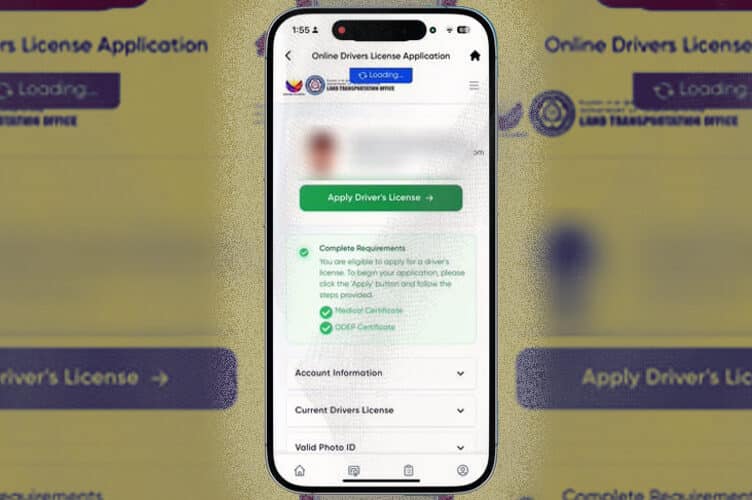ABOUT 10 years ago, my Cebu-based friend came by our residence in Parañaque and requested to stay for a few days. She just came from the airport and was offloaded by the Bureau of Immigration. She was supposed to go back to Doha to visit her sister.
“Bakit ka na-offload? Wala kang visa?” I asked.
“Meron naman. Tourist visa,” she said.
As a journalist, I knew the reason behind the strict prohibition of Philippine immigration for Filipinos going abroad. For countless times, Filipinos wanting to find work overseas often go the circuitous route, to countries where there are no required visas, only to end up being victims of human trafficking.
If it had been other people telling me that sob story of being offloaded, I would have said, “Ganun talaga. Kasi baka mag-TNT ka.”
But I held back.
“Wala kang dalang papeles?” I asked.
“Meron. Ito oh!” She showed me a plastic envelope full of photocopied documents of her sister’s employment, human resources certificates, letters, etc. Her sister works in a big airline company whose employees were given perks such as discounted airfares for family members.
SUGGESTED STORIES:
Justin Bieber returns with ‘Swag’
CANADIAN singer Justin Bieber made a surprise comeback to the.
A guide to renewing your driver’s license online
HEADS up, motorists! You do not need to schedule a.
Filipinos Ranked Most Emotional People Globally—Gallup
FEELING a little emotional lately? Filipinos are the most emotional.
But despite presenting voluminous documents, it appears that the BI officer was not convinced that she would only go to Qatar to visit her sister.
You see, my friend used to work as a sales agent in Dubai as an OFW. She has also worked in Japan as a singer/entertainer. She has all the markings of an OFW.
In the back of my mind, I knew her trip to Qatar was not to do sightseeing of the camels and deserts. But who am I to judge?
“Ano plano? Punta ka pa sa Qatar?” I asked.
“Oo. Mag-book na lang ulit yung sister ko,” she said.
Offloaded again
After securing another flight, my friend went back to the airport. Again, as expected, she was called to go into the “room” where grilling happens.
She called me over the phone.
“Malou, ino-offload na naman nila ako,” she said.
She said her sister emailed her another certificate from her employer, which she presented as additional evidence that her sister has the financial capacity to sponsor her.
@chamtanteras I missed my flight because of the immigration! #immigration #naia #travelphilippines #travelabroad #israel #palestine #naiaterminal1 #immigrationissues #travelingnomad #traveltips #islandgirl #siargao #islandlife #fyp #foryoupage
♬ original sound – Cham | Siargao Island Life 🌴 – Cham | Siargao Island Life 🌴
The advice
I sighed. Sensing her frustration, I gave her some advice, which I’m not sure if it will ever work.
“Sabihin mo sa immigration officer, ‘I have the constitutional right to travel.’ I-memorize mo,” I told her.
A day after, my friend texted, informing that she made it to Qatar and thanking me.
She thought I made some phone calls to the NAIA Immigration Office. I did not.
When I asked if she said that phrase to the immigration officer, she said, “Nabanggit ko.” But it appears that phrase didn’t register much on her.
“Ang dami kasing tanong. Tapos, may isang dumating na taga-immigration. Tinanong kung ako raw si —. Kaya akala ko may tinawagan ka,” she said.
My friend ended up working in Qatar, after she spent weeks at her sister’s place.
I almost forgot about this incident until I watched Tiktok videos of Filipino women getting offloaded and being asked to produce her yearbook by an immigration officer.
Right to travel
All Filipinos have the fundamental right to travel. It is enshrined in the 1987 Constitution, and the Philippines is also a signatory to the United Nations Universal Declaration of Human Rights.
However, the right to travel is not absolute, as the Philippine government can stop Filipinos from traveling overseas if it would impede national security, public safety or public health.
If Filipinos are being victimized by human trafficking overseas, can the Philippine government stop them from stepping onto the plane?
Technically, under Republic Act No. 9208 or the Anti-Trafficking in Persons Act of 2003, the Philippine government should give the “highest priority” to eliminating trafficking of persons.
Many government agencies are tasked to stop human trafficking of Filipinos and the Bureau of Immigration is one of them. The BI’s specific task: “Strictly administer and enforce immigration and alien administration laws.”
“It shall adopt measures for the apprehension of suspected traffickers both at the place of arrival and departure…” Section 16 reads.
A Filipino Tiktokerist traveler asked if the BI officer who offloaded her can have some form of “accountability” for missing her flight. She can try challenging that to court. But the agency can always refer to this law as a guide. Immigration officers can say they are just simply doing their job.
Anti-trafficking vs right to travel
However, there is another caveat in the law which is often overlooked and which genuine travelers, and even job-seekers, can use.
“Nothing in this Act shall be interpreted as a restriction of the freedom of speech and of association, religion and the right to travel for purposes not contrary to law as guaranteed by the Constitution,” Section 30 of RA 9208 says.
So, I won’t guarantee this phrase will work. But if everything is in order, your papers for your trip and your work, try this phrase and let me know your experience.
How useful was this post?
Click on a star to rate it!
Average rating 0 / 5. Vote count: 0
No votes so far! Be the first to rate this post.
We are sorry that this post was not useful for you!
Let us improve this post!
Tell us how we can improve this post?









